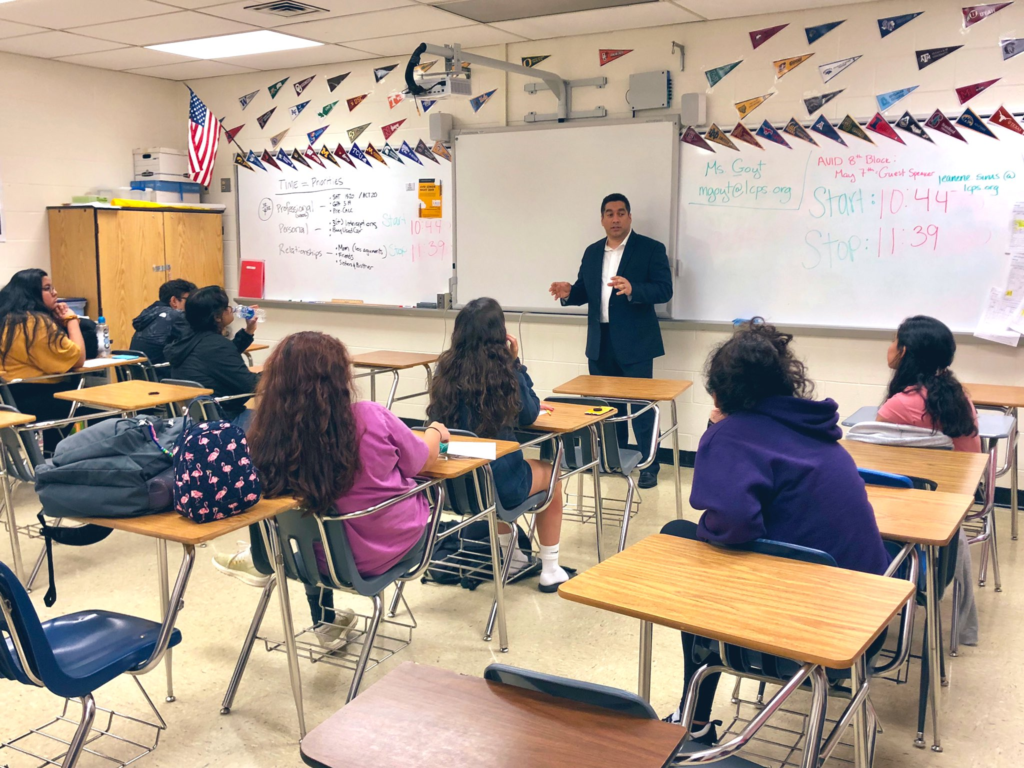Identification, Transfer Pathways, and Affordability

May 10, 2019 – Here’s our weekly roundup of education news you may have missed. Coverage and commentary discuss the challenges of identifying public school students for advanced courses and other resources. Affordability and community college transfer pathways are popular topics in higher education. Also, read about how Cooke Scholars are advocating for education access, the neurodiversity movement, and other social change.
Receive the Cooke Chronicle each week in your inbox: Subscribe here.
Elementary & Secondary Education:
- Research from a five-year study indicates that smaller class sizes help close achievement gaps for students from low-income families, reports the Journal Sentinel.
- The Thomas B. Fordham Institute explains the challenges of accurately identifying economically disadvantaged students, which affects how resources are allocated.
- “If the city Education Department really wants more underserved children in [gifted and talented] programs, in addition to universal testing, it must create more programs for them to test into,” states Alina Adams in The 74.
Higher Education:
- “Stories about college hunger have been largely anecdotal, cemented by ramen and macaroni and cheese jokes,” states The New York Times. “But recent data indicate the problem is more serious and widespread, affecting almost half of the student population at community and public colleges.”
- A University of Chicago Poverty Lab study finds that offering wraparound supports to community college students “increased full-time enrollment by 13 percent and increased retention to the next term by 11 to 16 percent.”
- The National Institute for the Study of Transfer Students (NISTS) shares insights from the Education Design Lab on how community colleges and four-year institutions can partner to create seamless transfer pathways.
- “The net prices charged by some private colleges and universities — the actual cost, after grants and discounts — are now significantly higher than some families’ entire annual incomes,” states The Hechinger Report.
Cooke Foundation Highlights:
- Did you catch our webinar with the American Association of Community Colleges (AACC) and Front Range Community College? Watch a recording here: Understanding and Supporting the Successful Transfer of Community College Students to Four-Year Institutions.
- In The Baltimore Sun, Cooke Scholar Sagar Chapagain explains how institutions can better communicate access and affordability to high-achieving students with financial need: “Too often, low-income students view college as unaffordable and, therefore, unattainable. In fact, concerns about college costs discourage one in three high-achieving, low-income students from applying at all.”
- “I feel it is time for me to step up in my role in the neurodiversity community by becoming a leader in it,” says Cooke Scholar Martha Gizaw. She shares her advice for neurodiverse college students in an article for William & Mary.
- Seminole State College features the work and advocacy of Cooke Scholar Daniel Leon-Davis, whose role as co-founder and partner of The Soze Agency has helped shape national conversations about immigration and other social policy issues.
Social Media Spotlight:
I am at @Park_View_HS with my @TheJKCF colleague Manny Rodriguez who is sharing his expertise on careers in #tech with eager juniors. Thanks @CommunityLcps for making this connection! pic.twitter.com/e2HQW22NEB
— Astrik Tenney (@astrik_tenney) May 7, 2019
Photo header: